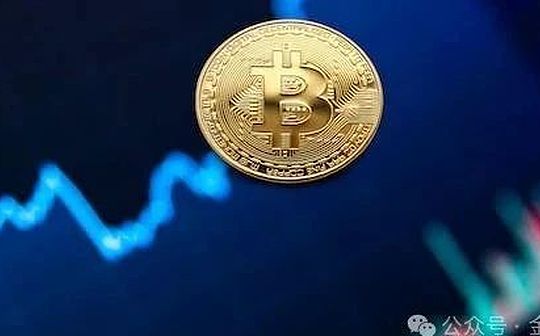
Source: Lawyer Jinjianzhi
Recently, according to the Supreme Court, the “Arrangement on Mutual Recognition and Implementation of Judgments in Civil and Commercial Cases in the Mainland and Hong Kong Special Administrative Region Courts” has begun implementation on January 29, 2024.Meanwhile, on January 1, 2024, the new tax reporting law has entered into force in the United States. All Americans who receive $10,000 or more cryptocurrencies during trade or business must submit them to the IRS within 15 days.Report.
As virtual assets gradually move towards compliance, the hot market needs to “cold thinking”, and government supervision cannot be avoided.
01“Difficulty in cross-border execution” is gradually resolved
The Mainland and Hong Kong have a long history of judicial assistance. The “Arrangement on Mutual Recognition and Implementation of Judgments in Civil and Commercial Cases between the Mainland and the Hong Kong Special Administrative Region Courts” began to be implemented, which means that the two sides of the Taiwan Strait will go from the initial delivery of documents and the extraction of evidence to mutual recognition andThe scope of execution of arbitral awards and judgments is becoming increasingly wider, and the problem of “difficulty in cross-border execution” is gradually being resolved.
The legal gap between the Mainland and Hong Kong mainly comes from the differences in the legal systems of both parties. In this regard, Lawyer Jin pointed out that mainland China adopts the mainland legal system, while Hong Kong adopts the common legal system.The common law system mainly forms laws through case law (precedent).When hearing a case, judges refer to previous precedents to judge similar situations; while the civil law system is usually based on Code, which is a systematically compiled legal document that stipulates detailed legal provisions.Judges usually pay more attention to the compliance and enforcement of the code.
02Mutual recognition and enforcement of civil and commercial judgments
Hong Kong and the mainland civil and commercial rulings have a long history of judicial assistance.In fact, before the “new arrangement”, there was actually “Arrangement on the Judgment of Civil and Commercial Cases in the Mutual Recognition and Enforcement of Jurisdiction Agreements between the Mainland and the Hong Kong Special Administrative Region Courts” (i.e. “Arrangement 2008”).The main changes in the “new arrangement” compared with the 2008 arrangement, the mutual recognition of civil and commercial judgments between the two places will no longer be subject to the original “exclusive jurisdiction agreement”, and an applicable judgment agreement is added.
Lawyer Jin said that the web3 industry in Hong Kong is actually the most active Chinese.The judicial attitude of Hong Kong judicial organs towards virtual currencies is predictable, and as civil and commercial judgments and arbitration awards of the two places are more convenient to implement each other, after obtaining the winning judgment and ruling in Hong Kong, the relevant judicial assistance arrangement will be made according to the relevant judicial assistance arrangements.It can also seek enforcement in mainland courts to increase judicial relief channels for the Hong Kong web3 industry.
03Tax supervision is an important part of the compliance process
On January 10, US time, the SEC announced the approval of Bitcoin spot ETFs and authorized 11 ETFs to start trading on Thursday local time.Since ETFs are securities, the supervision of the United States federal securities laws, such as the Securities Act (Securities Act of 1933) and the Securities Exchange Act (Securities Exchange Act of 1934) is subject to the supervision of the United States federal securities laws.Lawyer Jin believes that under the premise of being a tax resident in the United States, investors will still involve capital gains tax on purchasing Bitcoin ETFs, so they need to comply with US tax regulations.
04Future supervision direction
Recently, China’s anti-money laundering law has made important progress.On January 22, 2024, Premier Li Qiang presided over the Executive Meeting of the State Council to discuss the “Anti-Money Laundering Law of the People’s Republic of China (Revised Draft)” (hereinafter referred to as: Revised Draft). According to the legislative plan, the revised draft will be expected to be passed in 2025.Among them, the draft amendment to the Anti-Money Laundering Law has included the response to new types of money laundering risks, requiring financial institutions to assess the money laundering risks and take risk management measures before adopting new technologies and providing new products.
Regarding the future regulatory direction of the two places, lawyer Jin believes that in the short term, some policies in Hong Kong and the United States may change sharply, but in the long run, the future directions of the two places will be consistent, and virtual assets will be the same as others.Assets are regulated in a more compliant direction.
Note: The content of this article is compiled from the DeThings interview draft








